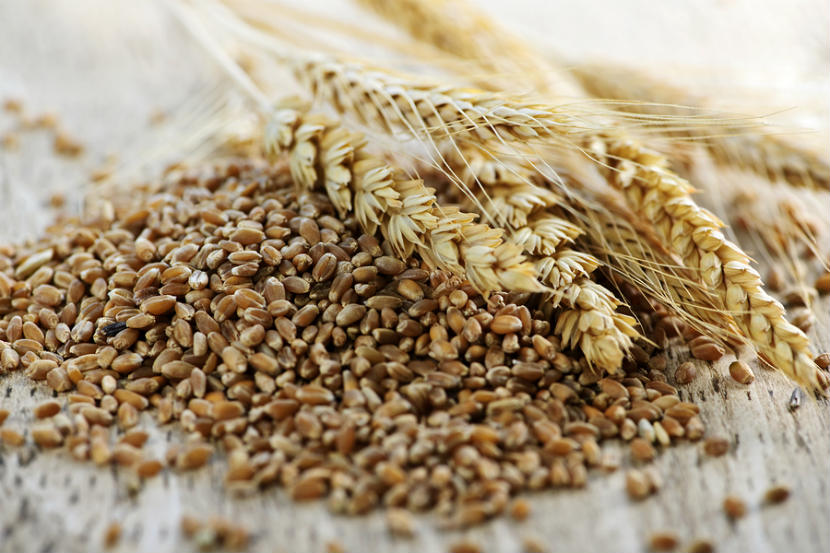
You may have heard about probiotics and their role in digestive health. But what about prebiotics? What are their health benefits? Read on to learn the difference between prebiotics and probiotics and their health benefits.
What is the difference between prebiotics and probiotics
Prebiotics are non-digestible carbohydrates that act as “food” for probiotics. Prebiotics help probiotics grow and remain in your digestive system. Not all non-digestible carbohydrates are prebiotics. All prebiotics must meet specific scientific criteria.
Probiotics are healthy bacteria that naturally live in the colon of our digestive systems. Certain probiotics have been linked to specific health benefits.
Types of prebiotics
Common prebiotics include:
- Fructo-oligosaccarides (FOS) or fructans and
- Galacto-oligosaccardes (GOS)
Inulin is one of the most commonly used types of FOS.
Where are prebiotics naturally found?
Inulin, a type of FOS is naturally found in:
Vegetables:
- Asparagus
- Bananas
- Garlic
- Jerusalem artichoke
- Leeks
- Onion
- Tomatoes
Grains:
Roots:
- Chicory root
- Dandelion root
- Elecampane root
Galacto-oligosaccardes (GOS) is naturally found in:
- Fermented dairy products like yogurt, buttermilk and kefir
- Also found naturally in breast milk
Try this delicious
beet and barley salad for a dose of prebiotics.
Prebiotics are also added to:
- Bread
- Breakfast cereals
- Dairy products like yogurt
- Sauces and soups
- Sports drinks
- Snack bars, granola bars
Where else are prebiotics found?
In Canada, prebiotics may be found:
- on their own as a prebiotic supplement
- in a probiotic supplement
- in a nutritional supplement or meal replacement
- in a fibre supplement (containing inulin)
- in a vitamin, mineral or herbal supplement (typically as inulin or FOS)
If prebiotics are sold as supplements, they are regulated like other vitamin, mineral and nutritional supplements under the Natural Health Product Regulations (NHP Regulations). NHPs require a Natural Product Number (NPN), a Drug Information Number (DIN) or a Homeopathic Medicine Number (DIN-HM) in Canada. Check to see your supplement has a NPN, DIN or a DIN-HM number.
Remember, being regulated does not guarantee that prebiotics are effective. It only means that the product contains what is listed on the label.
Do prebiotics have health benefits?
Yes. Prebiotics act as “food” for probiotics which help to keep a healthy balance of bacteria in the digestive system. Eating prebiotic-containing foods often contain fibre and other nutrients. While research is promising, more research is still needed to see if prebiotics are linked to other specific health benefits, like lactose intolerance. If you do not eat foods with prebiotics, you can still have a healthy digestive system by eating a balanced diet.
How much prebiotics do I need to see a benefit?
The recommended amount is unknown. Likely, it will depend on a number of things like the strain of bacteria, the health condition you are trying to improve and the types of other bacteria in the colon. It is also thought that prebiotic supplements or prebiotic-rich foods need to be taken regularly to see any benefits. Eating prebiotics on a regular basis will provide a constant flow of “food” for the helpful bacteria (probiotics) in your digestive system.
Can my child take prebiotics? What about if I’m pregnant?
Yes. Children and pregnant women can safely eat prebiotic-containing foods. As with the rest of the population, there are no recommended amounts for children and pregnant women.
If you’re pregnant and considering a prebiotic supplement or considering one for your baby or child, speak to your dietitian or health care provider to find out if they are right for you or your children.
How can a dietitian help?
A dietitian can assess your diet to see if you are getting enough fibre and prebiotics and give you personalized nutrition advice. Dietitians consider your history, personal goals and lifestyle, culture and food skills when making recommendations. Most employee health benefit plans cover dietitian services.
Connect with a dietitian today!
Bottom line
Prebiotics act as “food” for probiotics which help to keep a healthy balance of bacteria in the digestive system. Prebiotic-containing foods often contain fibre and other nutrients. Prebiotics are safe for infants, children, pregnant women and adult men and women. The amount needed to have health benefits is unknown.
While research is promising, more research is still needed to see if prebiotics are linked to other specific health benefits. If you decide to take a prebiotic supplement, check to make sure it has a NPN, DIN or a DIN-HM number. Remember, being regulated does not guarantee that prebiotics are effective. It only means that the product contains what is stated on the label and that they are safe to take. If you do not eat foods with prebiotics, you can still have a healthy digestive system by eating a balanced diet.
You may also be interested in:
The Pros of Probiotics
Focus on Fibre
Top 5 Reasons to See a Dietitian
This article was written and reviewed by dietitians from Dietitians of Canada. The advice in this article is intended as general information and should not replace advice given by your dietitian or healthcare provider.
Last Update – May 9, 2022